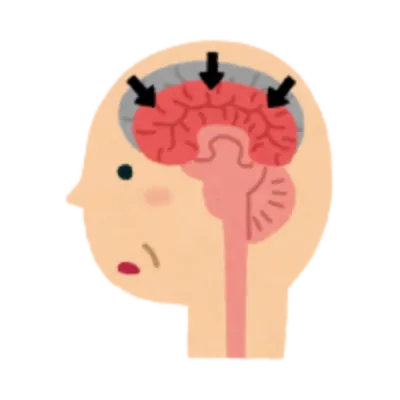
Living with MS
Living with multiple sclerosis (MS) is a journey of adaptation, resilience, and constant learning. It’s a condition that can be unpredictable, yet people living with MS find ways to build fulfilling, meaningful lives. No two experiences are identical, but there are common themes — factors that influence how each day unfolds.
This page explores ten key factors that shape life with MS, providing a realistic yet hopeful overview. Whether you are newly diagnosed or have lived with MS for decades, understanding these areas can help you make informed decisions, plan ahead, and feel more in control.
Ten Key Factors That Shape Life with MS
1. Physical Symptoms and Fluctuations
One of the defining characteristics of life with MS is its unpredictable physical symptoms. For some, these may include:
- Muscle weakness or stiffness
- Numbness or tingling in limbs
- Vision disturbances such as blurred or double vision
- Problems with coordination and balance
- Spasticity, tremor, or difficulty walking

These symptoms may appear suddenly during a relapse or worsen temporarily in response to stress, fatigue, or heat. In other cases, they may progress gradually. This uncertainty means that life with MS often requires a flexible mindset — plans may need adjusting at short notice, and routines may need built-in rest periods.
Practical strategies include keeping a symptom diary, recognising personal triggers, and discussing new or worsening symptoms promptly with your healthcare team. Many people also learn to “listen to their body,” resting when needed rather than pushing through to exhaustion.
Reference: https://www.mssociety.org.uk/about-ms/signs-and-symptoms/early-signs-of-ms

2. Fatigue Management
Fatigue is one of the most common and disruptive symptoms of life with MS. It’s more than simply feeling tired after a busy day — it’s a profound, sometimes overwhelming exhaustion that can strike without warning. Fatigue can be physical, cognitive, or both, affecting mobility, concentration, and emotional resilience.
For many, managing fatigue becomes an essential part of life with MS. Useful approaches include:
- Energy conservation techniques: Planning activities for times of the day when energy is highest, breaking large tasks into smaller steps, and using labour-saving devices.
- Pacing: Alternating between periods of activity and rest to avoid energy crashes.
- Prioritising tasks: Deciding what really needs doing today and what can wait.
Understanding your fatigue pattern is key. Some people find keeping a fatigue diary helps to spot trends and triggers. Over time, these insights allow for more realistic scheduling and a better balance between activity and rest.
3. Mobility and Accessibility
Mobility challenges are common in life with MS, ranging from subtle balance issues to more pronounced walking difficulties. Some people experience drop foot, where the toes drag when walking, increasing the risk of trips and falls. Others may need walking aids, wheelchairs, or scooters at certain times.

Improving accessibility — at home, work, and in the community — can transform daily life. Examples include:
- Installing grab rails and ramps
- Using stairlifts or lift access where possible
- Choosing supportive footwear to improve stability
- Requesting workplace adjustments under employment rights legislation
Mobility aids are tools for independence, not symbols of defeat. Embracing them when needed allows people to continue engaging with activities they enjoy, rather than avoiding them due to physical limitations. Life with MS does not need to be stigmatised.
For further information: https://mobilitytrust.org.uk/

4. Emotional Wellbeing
Life with MS can have a significant emotional impact. The uncertainty of symptoms, changes in ability, and social misunderstandings about the condition can all contribute to stress, frustration, anxiety, or depression.
Caring for emotional health is just as important as managing physical symptoms. Strategies that support wellbeing include:
- Talking openly with trusted friends or family
- Joining MS-specific support groups or online communities
- Exploring mindfulness, meditation, or breathing exercises
- Seeking counselling or psychological support when needed
Many people living a life with MS find that acknowledging their feelings, rather than suppressing them, helps them adapt more effectively. Over time, resilience builds — but it’s important to recognise when you might need extra support.
5. Cognitive Changes
Life with MS can sometimes affect cognitive function, leading to what’s often called “brain fog.” This may involve:
- Difficulty concentrating
- Short-term memory lapses
- Slower information processing
- Trouble finding the right words

These changes can be subtle or more noticeable, and they may vary from day to day. Managing cognitive symptoms can involve:
- Breaking complex tasks into smaller, more manageable steps
- Using reminders, lists, and calendars
- Allowing extra time to process information
- Engaging in mentally stimulating activities such as puzzles, reading, or learning new skills
For many, cognitive changes are frustrating — but they don’t mean the end of meaningful activity. Instead, life with MS often involves finding new ways to work around these challenges.
See also: https://mstrust.org.uk/information-support/health-wellbeing/thinking-and-memory-problems

6. Heat Sensitivity
Many people living a life with MS experience worsened symptoms in warm weather, a phenomenon known as Uhthoff’s. Even a small rise in body temperature can temporarily affect nerve conduction, making symptoms like fatigue, blurred vision, or muscle weakness more noticeable.
Practical ways to reduce heat-related flare-ups include:
- Wearing lightweight, breathable clothing
- Using cooling scarves or vests
- Staying hydrated
- Avoiding hot baths or showers
- Using fans or air conditioning during warmer months
Recognising heat sensitivity and planning ahead can prevent discomfort and help maintain function during warmer conditions. Life with MS is cool or rather it has to be.
Related Life with MS Articles
CBD Oil and MS: 7 Powerful Benefits Offering Real Hope
Spiders in Hair: 5 Powerful Insights That Bring Unexpected Comfort
Staying Positive: 9 Powerful Ways to Master Mind over MonSter
Building Resilience: 7 Powerful Steps to Reclaim Confidence
Managing Stress with MS
Living with MS: 7 Powerful Ways to Build Adaptation and Resilience
7. Diet and Nutrition
While there’s no single “MS diet,” nutrition plays a key role in overall health and energy levels. Many people find that life with MS involves eating a balanced diet that supports their immune system, manages weight, and boosts daily wellbeing.

Healthy eating habits often include:
- Plenty of fruits and vegetables for antioxidants and fibre
- Whole grains instead of refined carbohydrates
- Lean proteins such as fish, chicken, or legumes
- Healthy fats from nuts, seeds, and olive oil
- Limiting processed foods and added sugars
Some explore specific anti-inflammatory eating patterns, such as the Mediterranean diet. While no diet can cure MS, a thoughtful approach to nutrition can enhance quality of life with MS.

8. Exercise and Physical Therapy
Movement is essential in maintaining muscle strength, flexibility, and cardiovascular health. The key is to tailor activity to your current abilities, energy levels and lifestyle choices in your life with MS.
Suitable options for people with MS include:
- Swimming or water aerobics for low-impact resistance
- Yoga or Pilates for flexibility and core strength
- Short walks to maintain mobility and circulation
- Strength training with light weights or resistance bands
Working with a physiotherapist can ensure that life with MS exercises are safe and effective. Regular movement also supports mental health, reducing stress and improving mood.
9. Employment and Financial Planning
Life with MS can influence career paths, working hours, and the type of roles you feel able to manage. Open communication with employers and awareness of workplace rights can help maintain employment for longer.
Practical steps include:
- Requesting reasonable adjustments such as flexible hours or remote work
- Reviewing long-term financial plans and insurance
- Seeking professional advice on benefits and support schemes available for people with MS

Financial security is an important part of stability in life with MS. Planning ahead reduces uncertainty and creates more freedom to adapt to changes as they arise.
Reference: https://ms-uk.org/ms-and-work/multiple-sclerosis-finding-employment/

10. Access to Healthcare and Treatment
Having access to the right medical team and resources makes a huge difference in the journey of life with MS. This includes:
- Neurologists who specialise in MS
- Specialist MS nurses can advise on life with MS
- Access to disease-modifying therapies (DMTs)
- Rehabilitation services such as physiotherapy and occupational therapy
Regular reviews allow you to track disease progression, discuss treatment options, and adjust care plans as needed. Being proactive and informed can significantly influence long-term outcomes.
The Journey is Yours to Shape
Life with MS is not a straight road — it’s a winding path with challenges, unexpected turns, and moments of resilience you might never have imagined. By understanding these ten factors, you can make informed choices that help you live fully on your own terms.
➡ Continue reading: My Living with MS Journey







